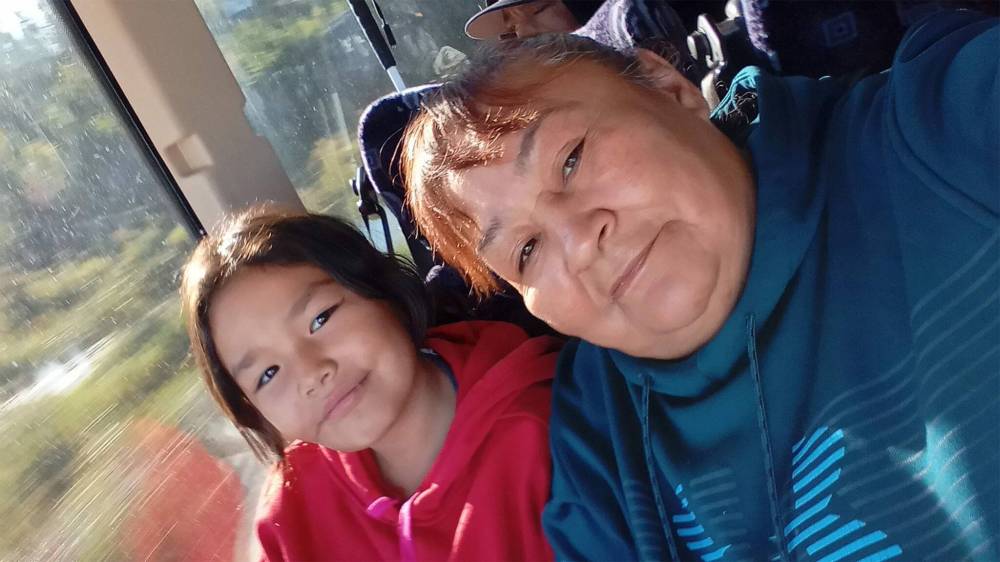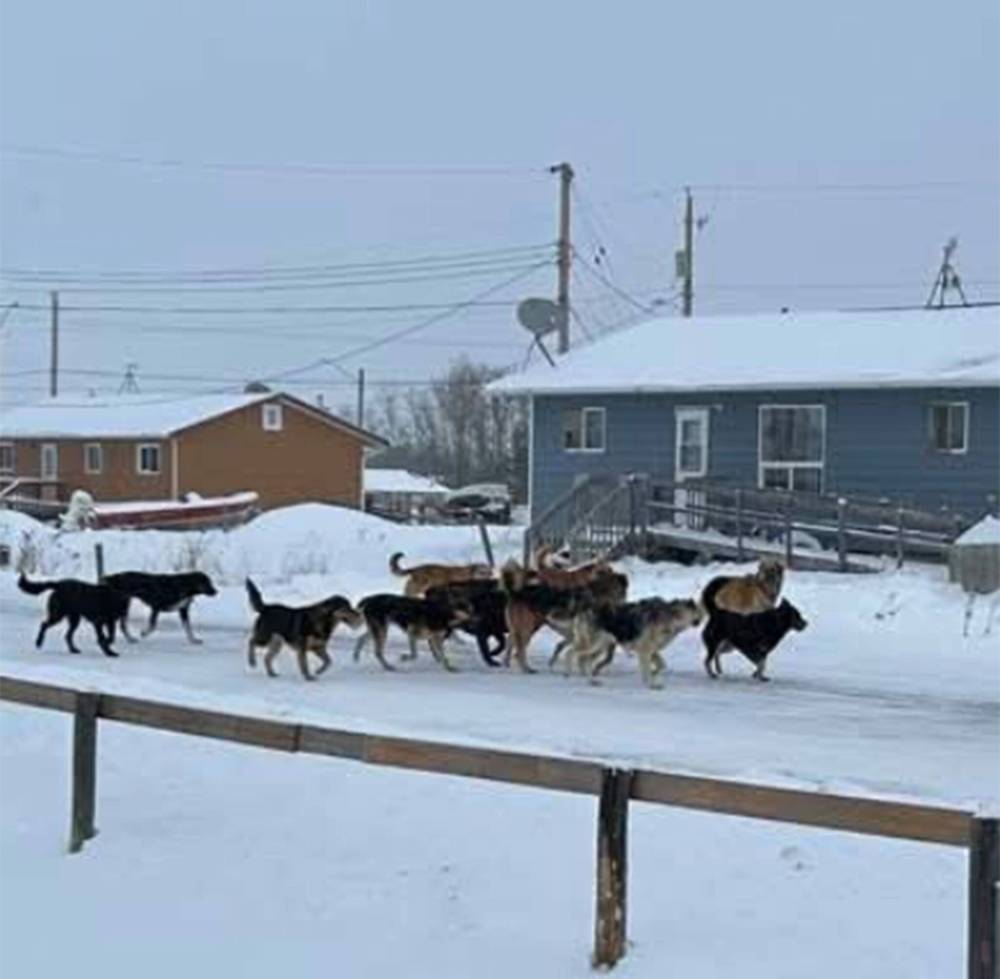AFTER a young girl was mauled by a pack of dogs in Norway House in August, a resident says she’s willing to take matters into her own hands if nothing is done to control the wild canines.
Lorraine Trout is scared to go outside knowing packs of dogs are roaming the streets after her granddaughter, Heavenly Monias, was attacked and left with life-altering injuries to her face.
She says she will do what she has to do to keep her community safe.

SUPPLIED
Lorraine Trout (right) with granddaughter Heavenly Monias who was mauled by a pack of dogs.
“I don’t care if I get in trouble, as long as there’s something done with those dogs before anybody gets killed by them,” Trout told the Free Press.
Nine-year-old Heavenly was mauled by 10 dogs while she was walking home one evening.
The dogs began to chase her and the child couldn’t outrun them. They tore a deep gash in her face from her mouth to her ear and left multiple puncture wounds on her chest and arm. She was flown to Winnipeg’s Health Sciences Centre for treatment.
Trout says Norway House captured some dogs in the days following the attack but the problem still persists.
“We tell them about the dogs, we phone to the band office but nothing’s ever done,” she said. “Nobody’s doing anything about it.”
The band office implemented a bylaw mandating residents register and leash their dogs, but Trout said it does little to address the wild, aggressive animals roaming about the community.
She won’t walk alone at night or go long distances to get groceries or to go the mall.
Norway House Chief Larson Anderson said stray dogs will be picked up and taken home, but legislation prevents them from culling animals unless absolutely necessary.

SUPPLIED
Heavenly Monias, 9, recovers in hospital after being mauled by dogs in August in Norway House.
Manitoba’s Animal Care Act protects animals in the care of people. The act prohibits causing animals to suffer, be seriously injured or killed, but in some circumstances the Animal Liability Act allows for the destruction of animals if a judge deems it necessary.
Anderson said it’s unfair for cities such as Winnipeg to be able to capture and kill animals if they’re behaving badly, referencing a dog shot dead by Winnipeg police after four people were attacked in October, but if a First Nation is doing it, it’s considered a crime.
“It’s not a fair system when we have RCMP around to help, but they won’t touch a dog,” he said. “We don’t shoot dogs for the sake of shooting them.”
Dog complaints are handled by the band council and RCMP will respond and provide assistance if asked, an RCMP spokesperson said in an email, adding there will be an immediate response if someone is being attacked.
The chief and Trout also point fingers at an animal rescue that they say is supposed to remove dogs from the community but often doesn’t.
Manitoba Animal Alliance, the organization that supports Norway House with dog control, did not respond to multiple requests for comment.
The community was having success with spay and neuter programs to control the dog population until the pandemic, when travel was restricted. And some people who got dogs during the pandemic and then started surrendering them afterward added to the problem in Norway House, Anderson said.
“So when our dogs were ready to be caught and sent up or sent down there was no room for them,” he said.

SUPPLIED
Norway House Chief Larson Anderson said legislation prevents stray dogs from being culled unless absolutely necessary.
The culture surrounding dogs is different in the community, where the animals are viewed as protectors of people and property, not pets, the chief added.
“We don’t have top-notch RCMP taking care of our homes, and so we have to find other ways to do that, and dogs are one way.”
Anderson said the First Nation has someone who will perform single culls on a case by case basis, but the community is trying to prevent the practice by working with community members to have more responsibility over their animals.
nicole.buffie@freepress.mb.ca

Nicole Buffie
Multimedia producer
Nicole Buffie is a multimedia producer who reports for the Free Press city desk. Born and bred in Winnipeg, Nicole graduated from Red River College’s Creative Communications program in 2020 and worked as a reporter throughout Manitoba before joining the Free Press newsroom in 2023. Read more about Nicole.
Every piece of reporting Nicole produces is reviewed by an editing team before it is posted online or published in print — part of the Free Press‘s tradition, since 1872, of producing reliable independent journalism. Read more about Free Press’s history and mandate, and learn how our newsroom operates.
Our newsroom depends on a growing audience of readers to power our journalism. If you are not a paid reader, please consider becoming a subscriber.
Our newsroom depends on its audience of readers to power our journalism. Thank you for your support.